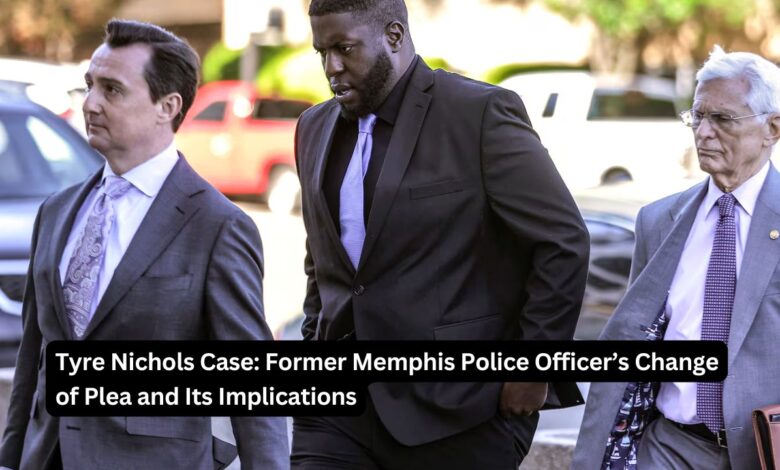Tyre Nichols Case: Former Memphis Police Officer’s Change of Plea and Its Implications

In a significant development within the Tyre Nichols case, a former Memphis police officer has opted to change their plea. This pivotal decision has intensified scrutiny on the case and underscores broader issues of police accountability and justice. This article examines the details of this recent plea change, the context of the case, and the potential implications for the pursuit of justice.
Background: The Tyre Nichols Case
The case of Tyre Nichols has become a focal point in discussions about police brutality and justice. Nichols, a 29-year-old Black man, was brutally beaten by Memphis police officers following a traffic stop on January 7, 2023. The incident, which tragically led to Nichols’ death, ignited nationwide outrage and intensified calls for accountability.
The violent encounter has underscored systemic issues within law enforcement, highlighting the urgent need for comprehensive reform. Nichols’ case has not only drawn significant media attention but also mobilized communities and activists advocating for greater oversight and accountability in policing practices.
The Change of Plea: Key Details
In a recent and unexpected development, a former Memphis police officer involved in Nichols’ beating has announced a change in their plea. Originally pleading not guilty to charges related to the incident, the officer has now decided to plead guilty to several charges. This change could be indicative of a strategic move aimed at potentially reducing sentencing or facilitating cooperation with ongoing investigations.
This shift in plea is expected to have substantial consequences for the legal proceedings and could influence the overall trajectory of the case. The officer’s new plea status will likely play a crucial role in shaping the remaining legal strategies and in determining the extent of accountability for those involved in Nichols’ death.
Implications for Justice and Accountability
The decision by the former officer to change their plea represents a crucial juncture in the quest for justice for Tyre Nichols. This development could expedite the legal process, bringing the case closer to resolution and potentially offering some measure of closure for Nichols’ family and the affected community.
This plea change highlights the critical need for holding law enforcement accountable for their actions. It emphasizes the importance of rigorous legal processes and fair adjudication in cases of police misconduct. Ensuring that justice is served is essential not only for the Nichols family but also for reinforcing trust in the justice system.
Broader Impact on Police Accountability
The Tyre Nichols case, particularly the recent plea change, is part of a larger dialogue on police accountability and reform. The incident and subsequent legal developments have spotlighted the necessity for systemic changes within police departments to prevent future occurrences of similar violence.
Addressing police brutality and improving mechanisms for accountability are crucial steps toward rebuilding trust between law enforcement and the communities they serve. The Nichols case has become a key example in ongoing debates about implementing effective reforms to ensure that officers who engage in misconduct are held responsible.
Public and Community Reactions
The announcement of the plea change has elicited diverse reactions from the public and the community. Advocates for justice and reform are closely monitoring the case, hopeful that the legal process will lead to meaningful outcomes.
Nichols’ family and supporters are expressing a mix of cautious optimism and continued demand for justice. The community remains engaged and vigilant, emphasizing the need for a legal resolution that aligns with principles of fairness and accountability.
Conclusion
The recent plea change by a former Memphis police officer in the Tyre Nichols case marks a pivotal moment in the ongoing quest for justice. This development has reinvigorated focus on the need for systemic reform and robust accountability within law enforcement.
As the legal proceedings advance, the case serves as a stark reminder of the imperative to address police misconduct and uphold the rights and dignity of all individuals. The outcome will be closely scrutinized as an indicator of progress in tackling police violence and ensuring that justice is effectively served.




